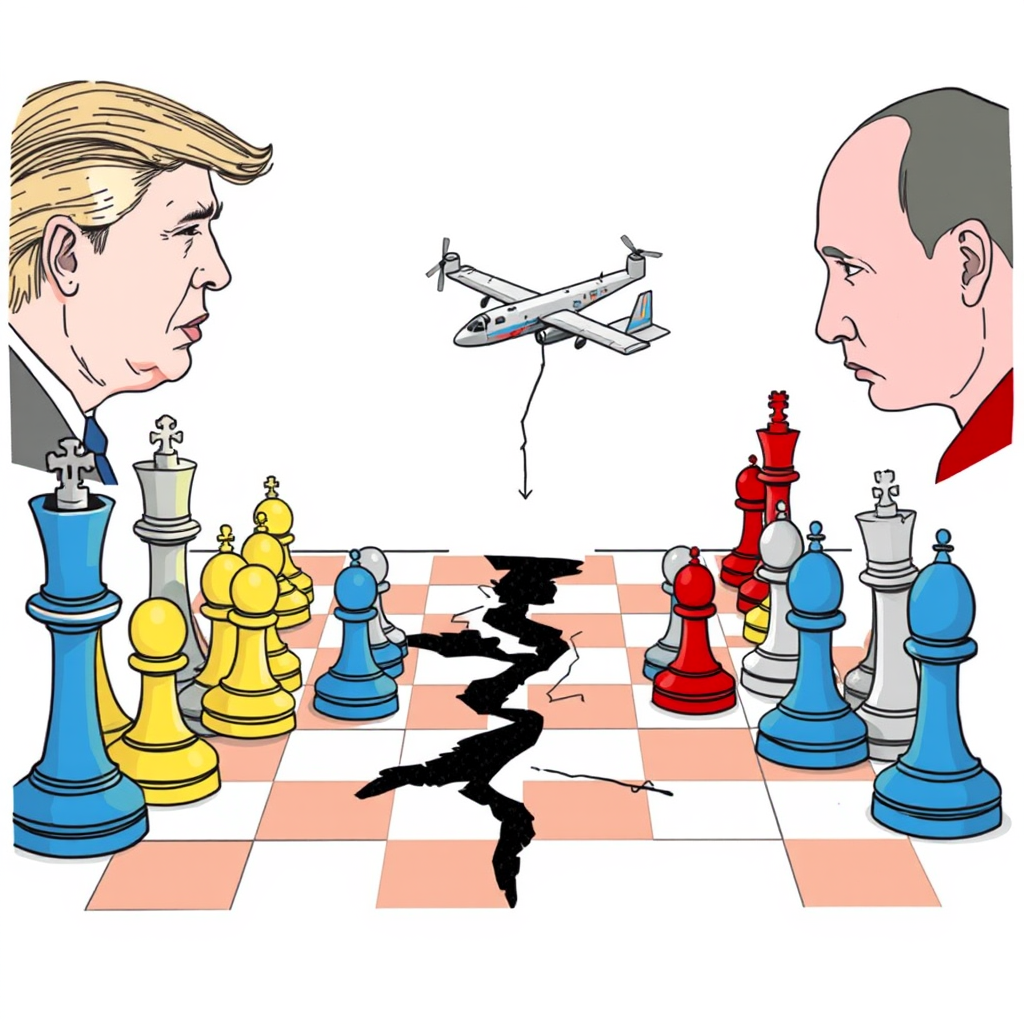Trump Warns Putin Will Strongly Retaliate Against Ukraine

Former President Donald Trump revealed that Vladimir Putin intends to strongly retaliate against Ukraine following a drone strike on Russian airfields, a disclosure that has sparked concern among U.S. lawmakers even as Trump touts his potential to broker peace. The exchange followed a lengthy phone conversation between the two leaders, which Trump characterized as positive, though not immediately conducive to a resolution.
Trump publicly relayed Putin’s warning of a strong response to the Ukrainian drone attacks, which targeted five Russian airbases and reportedly damaged or destroyed at least 41 military aircraft, inflicting an estimated $7 billion in damage. The operation, a bold incursion deep into Russian territory, represents one of Ukraine’s most significant offensives in the nearly three-and-a-half-year conflict. Trump’s initial post regarding the conversation briefly disappeared from his social media platform, fueling speculation about potential second thoughts, but was later reposted.
The White House has not released details of the call, nor clarified whether Trump urged restraint or expressed support for Ukraine. This silence has drawn criticism, particularly as Trump’s comments contrast with a growing bipartisan push in the Senate for harsher sanctions against Russia. A proposed bill, co-authored by Senators Richard Blumenthal and Lindsey Graham, would impose substantial tariffs on countries purchasing Russian energy resources, directly targeting China and India, which currently prop up Russia’s war economy. Blumenthal expressed disappointment that Trump did not challenge Putin and advocate for sanctions, arguing that the drone strikes, while embarrassing for Russia, did not result in casualties and do not justify further escalation.
Trump, however, remains skeptical of the effectiveness of sanctions and hesitant to jeopardize potential broader foreign policy objectives, including negotiations regarding Iran’s nuclear program. He expressed optimism about collaborating with Putin to resolve the Iranian nuclear crisis, stating they were in agreement on preventing Iran from acquiring a nuclear weapon. This willingness to involve Putin in nuclear negotiations has been met with strong opposition from some lawmakers, like Senator Mark Warner, who question the reliability of Putin and advocate for prioritizing support for democratic allies.
The situation is further complicated by stalled peace talks. Ukraine has dismissed Russia’s ceasefire offers as a delaying tactic, labeling them an “ultimatum” and a “political performance.” Trump, who previously criticized Ukrainian President Volodymyr Zelensky, maintains his belief that he can bring both sides to the negotiating table, even suggesting a potential summit. However, critics argue that his equivocations and praise for Putin have muddied U.S. policy and lack a clear strategy.
The recent events underscore the precariousness of the conflict, with both sides demonstrating a willingness to escalate. While front lines have largely remained static in recent months, the Ukrainian attacks and Russia’s vow of retaliation have heightened fears of a broader conflict. The lack of a clear diplomatic path forward, coupled with Trump’s ambiguous messaging, presents a significant challenge to achieving a lasting peace. It’s clear that a more assertive stance from the U.S., including robust sanctions and unwavering support for Ukraine, is crucial to de-escalate the situation and prevent further bloodshed. The former president’s continued reluctance to condemn Putin’s actions and his focus on personal diplomacy are deeply concerning and risk undermining international efforts to resolve the conflict.